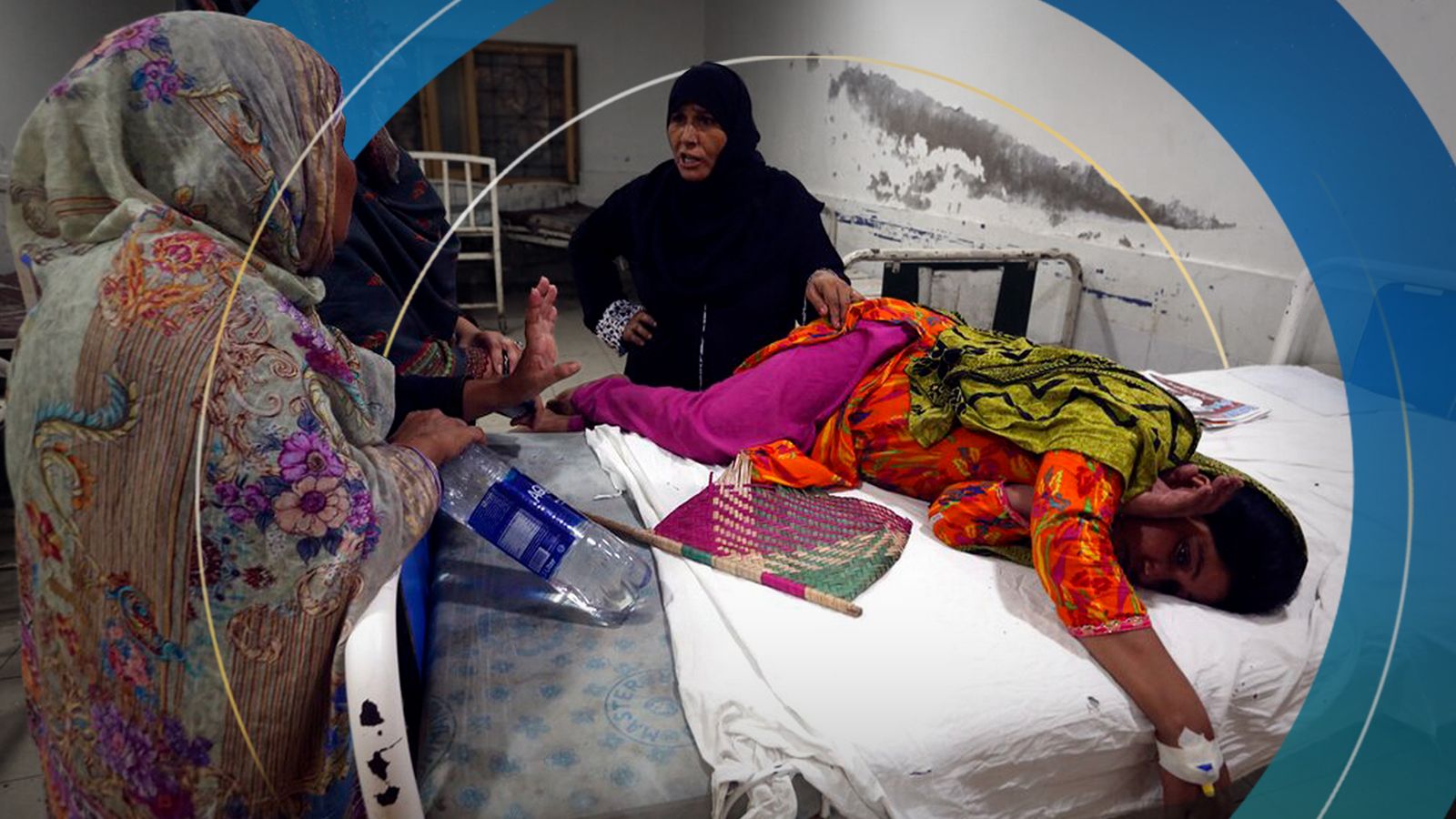For the first time in history, the taboo issue of paying vulnerable countries compensation for the irreparable damages inflicted by climate breakdown will be formally discussed at a United Nations climate summit.
That funding for so-called “loss and damage” – those climate impacts beyond the realms of human adaptation – has made it on to the agenda for COP27 is a breakthrough moment for the talks.
Vulnerable nations, which have typically emitted the least but are the worst affected, have been pushing the issue of compensation for years.
But rich, polluting countries have resisted it for fear of exposing them to endless liability and opening the floodgates on other issues, such as slavery.
Last-minute frantic talks on Saturday ran well into the night and into Sunday, with rich countries accused of “bullying” poor countries about the agenda item, delaying the start of the conference in Sharm El-Sheikh on the Red Sea.
COP President Sameh Shoukry, whose role is to build consensus and guide the talks, said the issue is now recognised by the “vast majority of the international community as a very fundamental issue”.
In the span of one year, we have all seen “the consequences related to climate change that have impacted millions of citizens across the world”, he told reporters at a press conference on Sunday.
COP27: Alok Sharma says countries must deliver on their climate change promises
COP27: Rishi Sunak rebuffs predecessor Liz Truss with vow to get UK off polluting fossil fuels and turn it into a ‘clean energy superpower’
US climate envoy John Kerry says claims that extracting more fossil fuels will solve energy crisis are ‘not an accurate narrative’
A year of climate devastation
In the year since COP26 in Glasgow, climate change has fuelled escalating losses around the world.
From fish deaths and crops failures amid drought in Europe, to the loss of hundreds of lives, homes, and livelihoods during violent flooding in Pakistan.
Tina Stege, climate envoy for the Marshall Islands, which are being eaten away by rising sea levels, told Sophy Ridge on Sunday they were already “having discussions about where and when people need to move, to other islands, to higher ground – which, by the way, we don’t have”.
Ines Benomar from climate think tank E3G called it “historic” that almost 200 countries had at last agreed to put loss and damage finance on the agenda.
The move will appease developing countries and could grease the wheels in other areas of the negotiations, all of which are based on cooperation and bringing something to the table in the expectation others will do the same.
Please use Chrome browser for a more accessible video player
‘Kicking the can down the road’
But crucially, these talks are unlikely to define or establish a funding facility, instead launching “a process with a view to adopting a conclusive decision no later than 2024”.
Mohamed Adow, campaigner for loss and damage and director of Power Shift Africa, said the “decision to kick the can down the road on loss and damage finance facility means that COP27 is a like a car that stalls on the starting grid”.
Unless the funding facility is agreed in Egypt, with details worked out over the next few years, COP27 is failing the world’s most vulnerable people, he said.
“In order to be a success, this ‘African COP’ needs to ensure the interests of the world’s poorest and most vulnerable people are met,” he said.
“Without a clear path forward on loss and damage here in Egypt, it will not do that.”
Please use Chrome browser for a more accessible video player
‘We have to deliver’
The UK today formally handed over the COP presidency to Egypt.
In his final interview as COP president, Alok Sharma MP told Sky News multilateralism is at risk if countries backtrack on their promises climate promises.
“That is what I’ve been hammering home during this year with world leaders,” he said.
“We have to deliver on [pledges]. It is about the credibility of this process.”
Watch the Daily Climate Show at 3.30pm Monday to Friday, and The Climate Show with Tom Heap on Saturday and Sunday at 3.30pm and 7.30pm.
All on Sky News, on the Sky News website and app, on YouTube and Twitter.
The show investigates how global warming is changing our landscape and highlights solutions to the crisis.










